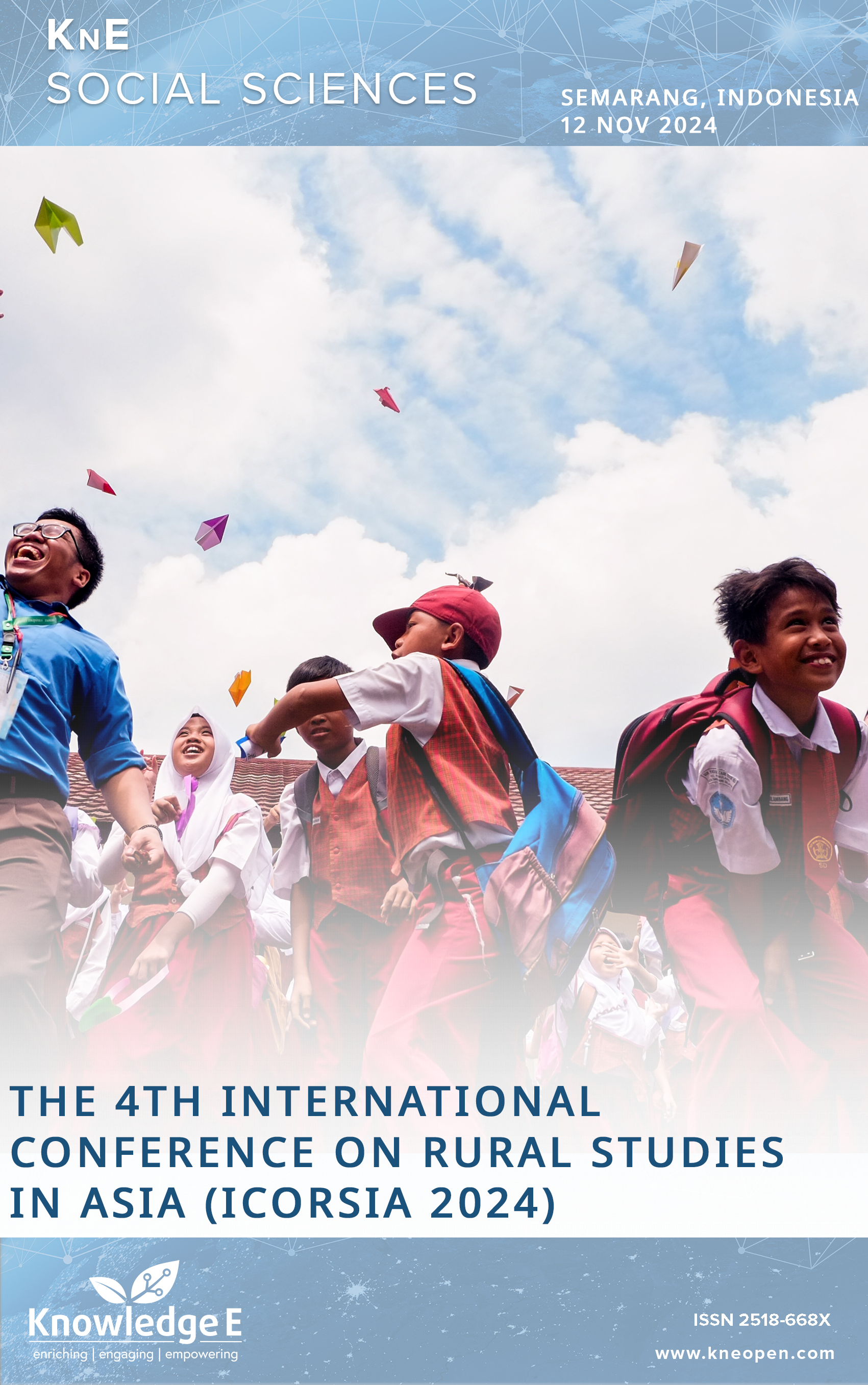Community-Based Waste Management for Village Environmental Sustainability in Urban Semarang
DOI:
https://doi.org/10.18502/kss.v10i10.18673Keywords:
environment, sustainability, community, waste management, villageAbstract
Before the COVID-19 pandemic, residents of Mayangsari Village actively worked to improve environmental quality, particularly by addressing waste management issues. These efforts also supported the development of river-based tourism, a newly introduced initiative in the area. This study analyzes how community-based waste management contributes to enhancing environmental quality in Mayangsari Village. Data were collected through in-depth interviews, observations, and documentation involving residents of Kampung Mayangsari, Kalipancur Village, in Semarang City. Using a qualitative descriptive analysis, the study showed that initial public awareness of proper waste disposal was low. Many residents disposed of garbage directly into the river, and waste was managed individually using outdated, informal methods. However, as environmental initiatives led by the village government took hold, especially those linked to optimizing the river for tourism, community awareness began to grow. Community-based waste management is well-developed through the education process carried out by the Rukun Warga (RT) and Rukun Tetangga (RT) institutions and several local social groups. Key steps included providing trash bins for each household, establishing waste disposal regulations and sanctions, and introducing waste sorting and recycling. These efforts have not only improved cleanliness but also turned recycling materials into valuable goods.
References
Schlehe J dan, Yulianto VY. Waste, Worldviews and Morality at the South Coast of Java: an Anthropological Approach. Artikel Occasional Paper Series. Germany: Southeast Asian Studies at the University of Freiburg.; 2018.
Fachri F. BNPB: 98 Persen Sungai di Indonesia Tercemar. Artikel online Republika. 2019.
Fajar dan Rini HS. River Environment Conservation Efforts through Development Ecotourism River Tubing Mayangsari to Support Sustainable Development. Semarang: Prosiding ICESI. Semarang: FIS UNNES; 2019.
Hardati P dkk. Buku Ajar Pendidikan Konservasi. Semarang: Unnes Press; 2016.
Retnoningsih A dkk. Pendidikan Konservasi Tiga Pilar. Semarang: Unnes Press; 2018.
Harmayani KD. dan, I.G.M. Konsukartha. Pencemaran Air tanah Akibat Pembuangan Limbah Domestik di Lingkungan Kumuh Studi Kasus Banjar ubung Sari, Kelurahan Ubung. Jurnal Permukiman Natah. 2007;5(2):92–108.
Widiyanto FA, Yuniarno S, Kuswanto K. Kuswanto. Polusi Air Tanah Akibat Limbah Industri dan Limbah Rumah Tangga. Jurnal Kesehatan Masyarakat. 2015;10(2):246– 54.
Sulistiyani AT, Wulandari Y. Proses Pemberdayaan Masyarakat Desa Sitimulyo, Kecamatan Piyungan, Kabupaten Bantul dalam Pembentukan Kelompok Pengelola Sampah Mandiri. Indonesian Journal of Community Engagement. 2017;2(2):146–62.
Afriza FE. Suhendra, dan Nurdianti RRS. Edukasi Ecobrik Sebagai Solusi Manajemen Pengelolaan Sampah Berbasis Masyarakat. In: Proceeding of Community Develop- ment. 2018. p. 799–807.
Setiadi A. Studi Pengelolaan Sampah Berbasis Komunitas pada Kawasan Permuki- man Perkotaan di Yogyakarta. Jurnal Wilayah dan Lingkungan. 2015;3(1):27–38. https://doi.org/10.14710/jwl.3.1.27-38.
Nurkomalasari D. Pengembangan Model Pengelolaan Sampah Rumah Tangga Berbasis Masyarakat di RW 08 Merbabu Asih Kota Cirebon. Journal of educational social studies. 2014;3(2):1–5.
Mapa MT dkk. Waste Management Strategy in Developing Country: a Study Case of Waste Management Otions in Kota Kinabalu Sabah, Malaysia. Annals International Journal of Engineering. 8(2):107–9.
Mapa MT. dkk. Local Government’s Waste Material Management with Private Sectors- A Case Study in Kota Kinabalu City Sabah, Malaysia. The Journal of Public Policy & Governace. 2012;6(2):99–113.
Sunarsih E. Konsep Pengolahan Limbah Rumah Tangga dalam Upaya Pencegahan Pencemaran Lingkungan. Jurnal Ilmu Kesehatan Masyarakat. 2014;55(2):162–7.
Moleong LJ. Metodologi Penelitian Kualitatif. Bandung: Remaja Rosdakarya; 2004.
Bogdan RC, Biklen SK. Qualitative Research for Education: An Introduction to Theory and Methods. Massachusetts: Allyn and Bacon Inc.; 1982.
Miles MB. Dan Huberman AM. Analisis Data Kualitatif: Buku Sumber Tentang Metode- Metode Baru. Terjemahan Tjetjep Rohendi Rohidi. Jakarta: UI Press; 1992.
Published
How to Cite
Issue
Section
License
Copyright (c) 2025 KnE Social Sciences

This work is licensed under a Creative Commons Attribution 4.0 International License.

